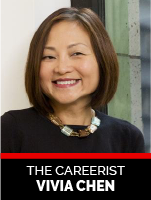Big Law's Double Talk on Racial Equality: This You?
Can a Twitter meme help force law firms to go beyond superficial commitments on race?
June 17, 2020 at 04:36 PM
5 minute read
 Photo: Shutterstock
Photo: Shutterstock
You know the white establishment must be quaking in its boots when someone as icy as Vogue editrix Anna Wintour is voicing contrition and offering listening tours about race. (Wintour told staff members, "I know Vogue has not found enough ways to elevate and give space to black editors, writers, photographers, designers and other creators. We have made mistakes, too, publishing images or stories that have been hurtful or intolerant.")
Oh, I know you're scratching your head wondering why I'm bringing up the dowager of high fashion in a column directed at lawyers. Well, like Wintour, a lot of partners seem to be tripping over themselves right now to show how much their firms care about racial justice. And also like Wintour, many have been in power for decades, doing squat to change the racial dynamics at their own shops but suddenly finding religion in Black Lives Matter.
I don't mean to be overly cynical—because I do believe many people are genuinely moved by the killing of George Floyd—but one word comes to mind when I read some of the grand corporate statements about how much businesses are vested in the fight for racial equality: Hypocrisy. Not to state the obvious, but law firms and corporations really haven't done too well in the racial equality department. (Reminder: Black lawyers make up less than 2% of all equity partners in major firms.)
So is this where we are—again—letting firms and companies create their own self-serving narrative without addressing deeper issues about race, particularly their own history of failure with minorities?
 Not anymore. Aisha Harris' mordant op-ed in The New York Times describes how black people are calling out the hypocrisy and promoting accountability. "The Ghost of Racism Past," writes Harris, "exists in many forms, but on Black Twitter as of late, it has frequently taken on the shape of two simple words. 'This you?' "
Not anymore. Aisha Harris' mordant op-ed in The New York Times describes how black people are calling out the hypocrisy and promoting accountability. "The Ghost of Racism Past," writes Harris, "exists in many forms, but on Black Twitter as of late, it has frequently taken on the shape of two simple words. 'This you?' "
It works like this: When someone talks about caring about black lives or the cause of equality, Black Twitter checks for hypocrisy. Harris cites H&M France's tweet, "support for black Americans," as an example. That tweet was met with a "This you?" retweet, "with an image of the retailer's ad from 2018 featuring a black boy in a hoodie that reads 'Coolest Monkey in the Jungle.'" Others caught in the "This you?" net include The Disney Co., NFL player Drew Brees, Justin Bieber and Mark Wahlberg.
The Twitter meme, writes Harris, "captures the sense among some that for all the attention given and demonstrating and donating that has occurred in the past two weeks, not much has changed—yet. It taps into a feeling that these affirmations of black life by public figures and corporations alike are merely lip service for the time being, catching on the way trends often do—if everyone 'cool' is doing it, it's finally safe for them to do, too."
Indeed, something feels shallow about how some of the most prestigious firms in the land are dealing with the issue. For example, law firms are jumping on the Juneteenth bandwagon by giving employees the day off, yet most firms won't commit to extending the commemoration beyond this year. (Query: Do firms think that racial justice will be irrelevant by next year?)
Some firms have announced they are also committing significant amounts of money and pro bono services to promote racial justice. To name just two examples, Pillsbury Winthrop Shaw Pittman pledged $1 million in cash donations and $10 million in pro bono/volunteer work for next three years, while Paul, Weiss, Rifkind, Wharton & Garrison has pledged $2 million of direct financial support and $10 million per year in pro bono services "for the foreseeable future," according to chair Brad Karp. But my hunch is that many more firms are doing far less—issuing a statement and maybe making a one-time donation. (Above the Law runs a list of firm statements and their donations. Some highly profitable firms are only committing $100,000 in donations, which is frankly paltry.)
I don't know if "This you?" will get law firms on the stick, but it's worth a try. When they trot out all the fabulous things they're doing for black lawyers and other minorities, let's see the hard numbers of their poor record on retaining and promoting minorities. In my experience, firms love to talk about their latest initiative for diverse lawyers. But ask them about how many black partners they have, and they go quiet.
So keep bugging them and ask, "this you?"
"It's a way to keep people and organizations in check, and nudge them to work harder to receive their cookies, to make it clear that this won't be easy for them, because it has never been easy for black people," sums up Harris.
And that's exactly the kick in the butt that Big Law needs.
Twitter: @lawcareerist
This content has been archived. It is available through our partners, LexisNexis® and Bloomberg Law.
To view this content, please continue to their sites.
Not a Lexis Subscriber?
Subscribe Now
Not a Bloomberg Law Subscriber?
Subscribe Now
NOT FOR REPRINT
© 2025 ALM Global, LLC, All Rights Reserved. Request academic re-use from www.copyright.com. All other uses, submit a request to [email protected]. For more information visit Asset & Logo Licensing.
You Might Like
View All

Treasury GC Returns to Davis Polk to Co-Chair White-Collar Defense and Investigations Practice
2 minute read
Kirkland & Ellis Taps Former Co-Chair of Greenberg Traurig’s Digital Infrastructure Practice
3 minute read
Law Firms Mentioned
Trending Stories
- 1Is It Time for Large UK Law Firms to Begin Taking Private Equity Investment?
- 2Federal Judge Pauses Trump Funding Freeze as Democratic AGs Launch Defensive Measure
- 3Class Action Litigator Tapped to Lead Shook, Hardy & Bacon's Houston Office
- 4Arizona Supreme Court Presses Pause on KPMG's Bid to Deliver Legal Services
- 5Bill Would Consolidate Antitrust Enforcement Under DOJ
Who Got The Work
J. Brugh Lower of Gibbons has entered an appearance for industrial equipment supplier Devco Corporation in a pending trademark infringement lawsuit. The suit, accusing the defendant of selling knock-off Graco products, was filed Dec. 18 in New Jersey District Court by Rivkin Radler on behalf of Graco Inc. and Graco Minnesota. The case, assigned to U.S. District Judge Zahid N. Quraishi, is 3:24-cv-11294, Graco Inc. et al v. Devco Corporation.
Who Got The Work
Rebecca Maller-Stein and Kent A. Yalowitz of Arnold & Porter Kaye Scholer have entered their appearances for Hanaco Venture Capital and its executives, Lior Prosor and David Frankel, in a pending securities lawsuit. The action, filed on Dec. 24 in New York Southern District Court by Zell, Aron & Co. on behalf of Goldeneye Advisors, accuses the defendants of negligently and fraudulently managing the plaintiff's $1 million investment. The case, assigned to U.S. District Judge Vernon S. Broderick, is 1:24-cv-09918, Goldeneye Advisors, LLC v. Hanaco Venture Capital, Ltd. et al.
Who Got The Work
Attorneys from A&O Shearman has stepped in as defense counsel for Toronto-Dominion Bank and other defendants in a pending securities class action. The suit, filed Dec. 11 in New York Southern District Court by Bleichmar Fonti & Auld, accuses the defendants of concealing the bank's 'pervasive' deficiencies in regards to its compliance with the Bank Secrecy Act and the quality of its anti-money laundering controls. The case, assigned to U.S. District Judge Arun Subramanian, is 1:24-cv-09445, Gonzalez v. The Toronto-Dominion Bank et al.
Who Got The Work
Crown Castle International, a Pennsylvania company providing shared communications infrastructure, has turned to Luke D. Wolf of Gordon Rees Scully Mansukhani to fend off a pending breach-of-contract lawsuit. The court action, filed Nov. 25 in Michigan Eastern District Court by Hooper Hathaway PC on behalf of The Town Residences LLC, accuses Crown Castle of failing to transfer approximately $30,000 in utility payments from T-Mobile in breach of a roof-top lease and assignment agreement. The case, assigned to U.S. District Judge Susan K. Declercq, is 2:24-cv-13131, The Town Residences LLC v. T-Mobile US, Inc. et al.
Who Got The Work
Wilfred P. Coronato and Daniel M. Schwartz of McCarter & English have stepped in as defense counsel to Electrolux Home Products Inc. in a pending product liability lawsuit. The court action, filed Nov. 26 in New York Eastern District Court by Poulos Lopiccolo PC and Nagel Rice LLP on behalf of David Stern, alleges that the defendant's refrigerators’ drawers and shelving repeatedly break and fall apart within months after purchase. The case, assigned to U.S. District Judge Joan M. Azrack, is 2:24-cv-08204, Stern v. Electrolux Home Products, Inc.
Featured Firms
Law Offices of Gary Martin Hays & Associates, P.C.
(470) 294-1674
Law Offices of Mark E. Salomone
(857) 444-6468
Smith & Hassler
(713) 739-1250










